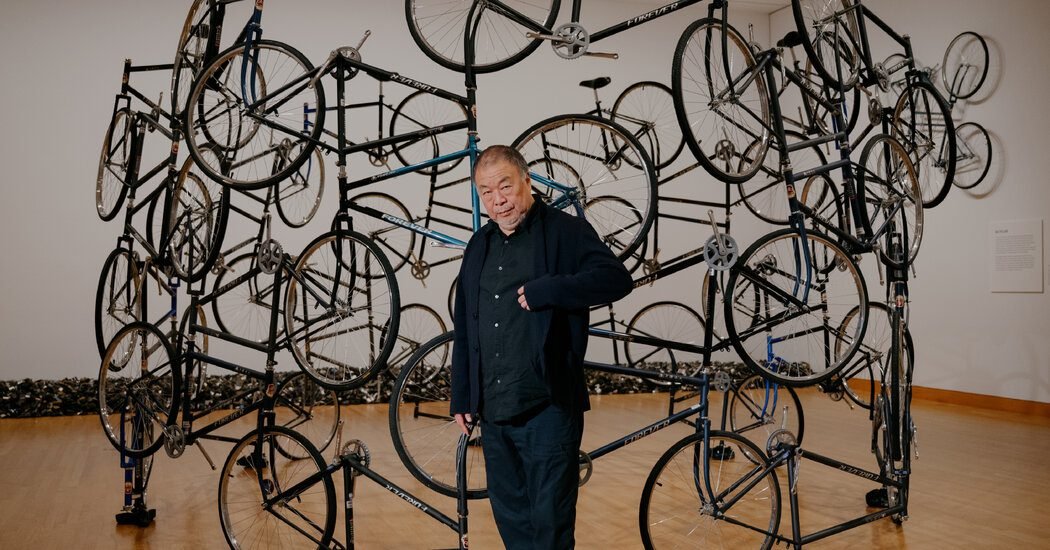This article is part of our Museums special section about how artists and institutions are adapting to changing times.
For more than 40 years, Ai Weiwei has transformed personal experiences, empathy and global politics into visionary art forms that tickle the eye and challenge the brain, making him one of the world’s most cerebral conceptual artists.
“Given everything you’ve done,” I asked him here at the Seattle Art Museum, where a major retrospective of his work is on exhibit, “do you consider yourself first an artist, a social critic or a political activist?”
“I like to have labels,” he said. “To be ‘artist’ will not offend me.” So far, so good. But then he said, “I prefer to be a critic or some kind of historical thinker or social activist.”
In truth, Ai Weiwei, at 67, is all those things as evidenced by this, his largest show ever in the U.S., “Ai, Rebel: The Art and Activism of Ai Weiwei.” With more than 130 pieces from the 1980s to the current decade, it tracks his progression from painting, which he abandoned early, to social criticism through ordinary objects reimagined to symbolize his take on human rights, freedom of speech, Chinese culture and disasters, both natural and man-made.
The show, which opened here in March and runs through Sept. 7, highlights work from his formative years in his native Beijing through 12 years in New York, where he attended the Parsons School of Design, honed skills as a photographer and began infusing western culture into his work. He then went back to China for 22 years and spent the last 10 in Europe, where he now splits time between a Lisbon suburb and his studio in Berlin, with an occasional trip to visit his son at school in Cambridge, England.
The works here reveal his fascination for almost anything as a medium for making a point, including wood, steel, marble, photographs, film, video, social media and one of his recent favorites, Lego bricks.










